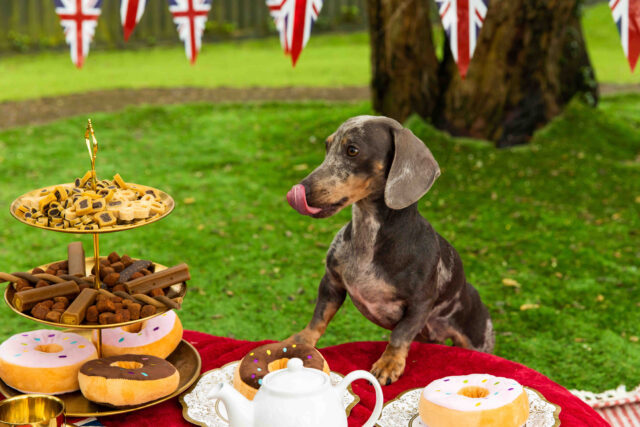
As schools across the UK break-up for the Easter holidays and festivities get underway, the British Veterinary Association is warning pet owners to keep traditional goodies – such as chocolate eggs and hot cross buns – out of reach of their animals to avoid emergency vet visits this April.
The warning comes as statistics from the Veterinary Poisons Information Service (VPIS), which provides emergency advice to veterinary professionals about poisoning cases and runs Animal PoisonLine for owners, reveal that it received over 100 enquiries about animals eating chocolate last Easter. Half of all enquiries it receives about pets ingesting hot cross buns, which contain vine fruits that are poisonous to many animals, also unsurprisingly come at Easter.
Although 80 per cent of enquiries related to chocolate ingestion involve dogs, it’s not just cheeky canines who bite off more than they can chew: the VPIS reports 15 per cent of enquiries about chocolate ingestion relate to cats and 3 per cent to rabbits.
Chocolate, especially dark chocolate, can be dangerous for all pets. Dogs, however, are particularly susceptible to poisoning due to a chemical called theobromine, which is found naturally in cocoa beans. Theobromine takes a long time to be broken down inside a dog’s digestive system, which means that even small amounts of chocolate can potentially result in toxic levels, especially for smaller dogs and puppies. Although white chocolate is usually safer for dogs if ingested accidentally, milk and dark chocolate can cause poisoning, so it’s better to err on the side of caution and keep all types of chocolate away.
Raisins and sultanas, found in hot cross buns and simnel cakes, and xylitol (found in sugar-free treats) can also be dangerous for dogs if ingested.
British Veterinary Association Junior Vice President Rob Williams said:
“Chocolate eggs and hot cross buns are just a few of the treats which spring onto the shelves at this time of year. While they are delicious for us, the VPIS statistics show they are also tempting – but toxic – to our pets. Many of us will know the dangers that chocolate presents to dogs, but other pets such as cats and rabbits can also become seriously unwell if they eat it, while hot cross buns also contain vine fruits which is particularly toxic too. It’s best to make sure that all sweet treats and tempting titbits are kept out of reach of your pets to avoid emergency vet visits, but if you think your pet has eaten something they shouldn’t, it’s really important that you speak to your vet – it could save their life.”
Symptoms of chocolate poisoning
Symptoms of chocolate poisoning usually appear within 12 hours of ingestion and can last for up to three days. Initially, pets are likely to experience excessive thirst, vomiting, diarrhoea and restlessness. These can develop into symptoms of hyperactivity, tremors, increased heart rate, hyperthermia and rapid breathing. Severe cases may result in fits and heartbeat irregularities, and even coma and death. If you notice these symptoms in your dog and suspect chocolate ingestion, seek veterinary advice as soon as possible.



